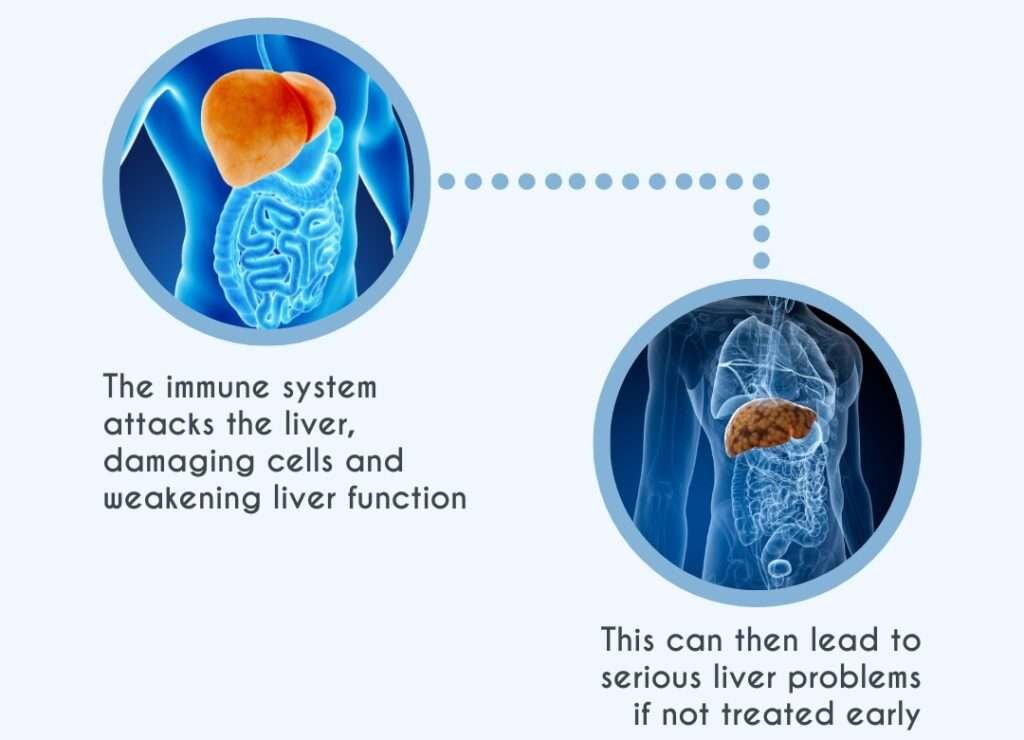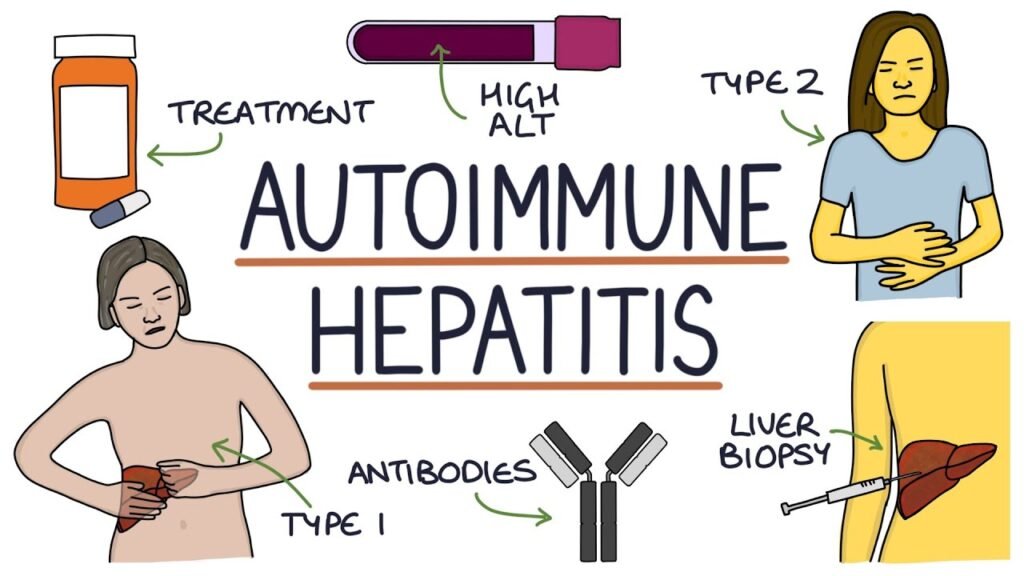Autoimmune hepatitis
Autoimmune hepatitis (AIH) treatment focuses on suppressing the immune system with medications like corticosteroids (e.g., prednisone) and azathioprine to reduce liver inflammation and damage. Symptoms of AIH, which vary widely and can include fatigue, abdominal pain, jaundice, and joint pain, may be absent in some individuals. Treatment aims to prevent serious complications like cirrhosis and liver failure, though a liver transplant may be necessary in advanced cases
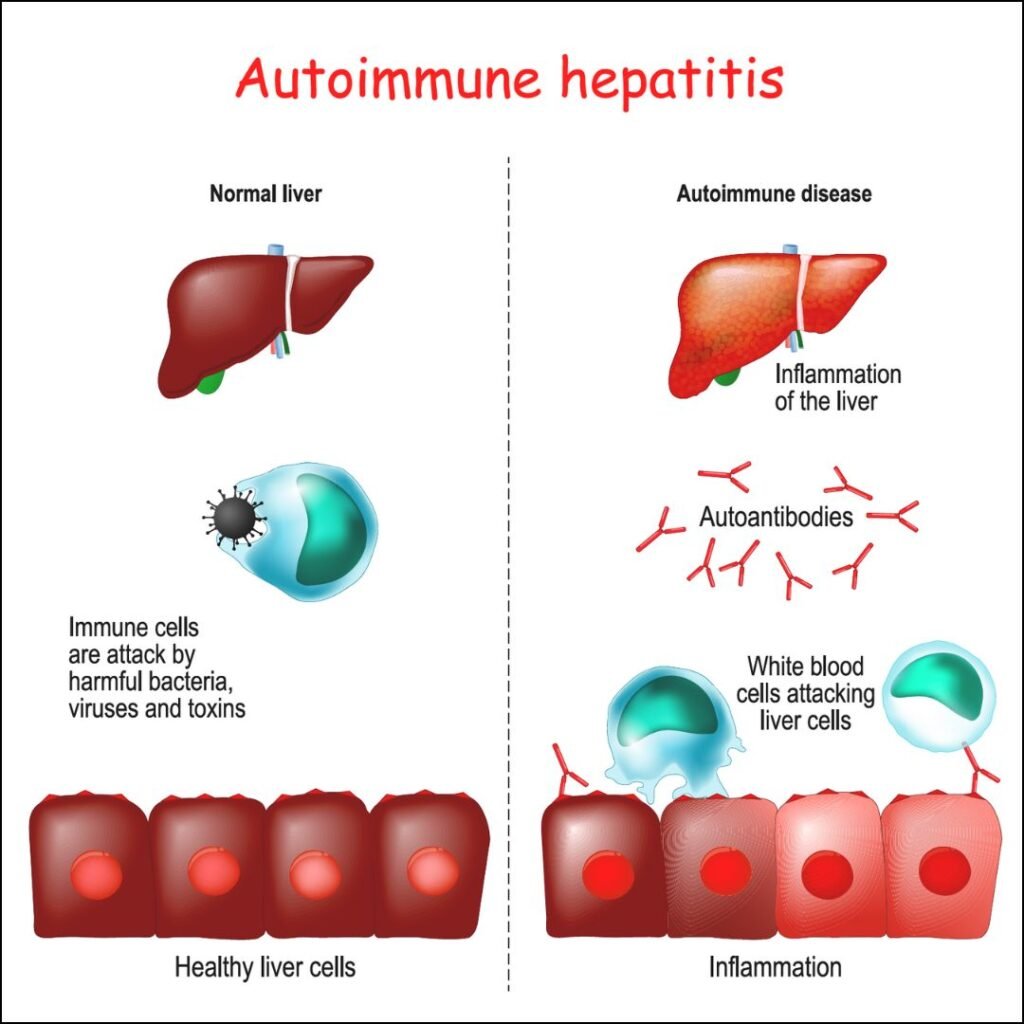
Symptoms
Symptoms of autoimmune hepatitis can vary widely. For some people, the disease develops slowly with few noticeable signs, especially in the early stages. For others, symptoms may appear suddenly and be more severe.
Common symptoms include:
Feeling very tired (fatigue)
Discomfort or pain in the belly
Yellowing of the skin and eyes (jaundice) – this may be more or less noticeable depending on skin tone
An enlarged liver
Small, irregular blood vessels on the skin (spider angiomas)
Skin rashes
Joint pain
Loss of menstrual periods
When to See a Doctor
Make an appointment with a healthcare professional if you have symptoms that concern you. Early diagnosis and treatment can help prevent serious liver damage.
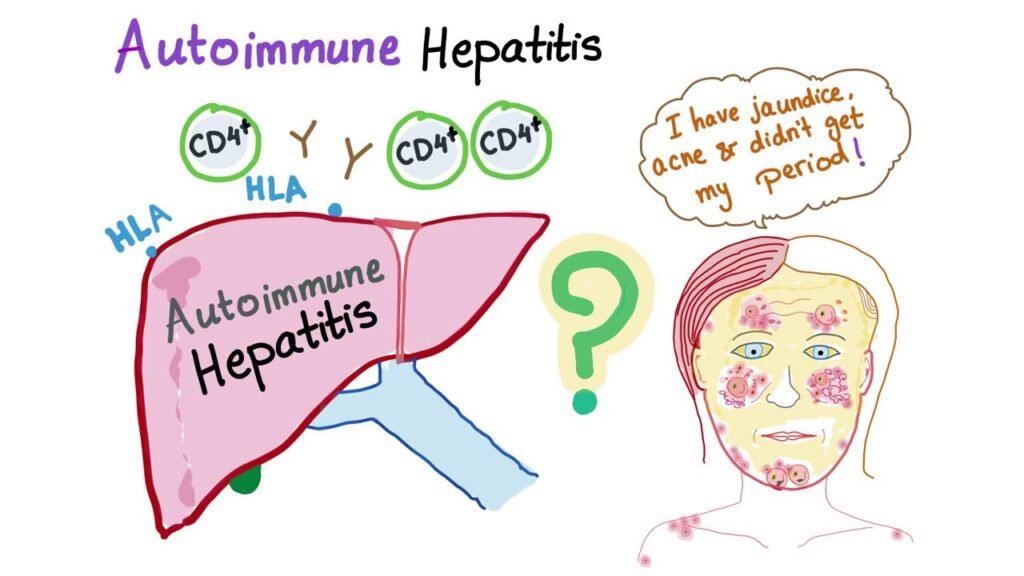
Causes of Autoimmune Hepatitis
Autoimmune hepatitis occurs when the body’s immune system, which usually attacks viruses, bacteria and other causes of disease, instead targets the liver. This attack on the liver can lead to long-lasting inflammation and serious damage to liver cells. Just why the body turns against itself is unclear, but researchers think autoimmune hepatitis could be caused by the interaction of genes controlling immune system function and exposure to viruses or medicines.
Types of autoimmune hepatitis
Experts have identified two main forms of autoimmune hepatitis.
- Type 1 autoimmune hepatitis. This is the most common type of the disease. It can occur at any age. About half the people with type 1 autoimmune hepatitis have other autoimmune disorders, such as celiac disease, rheumatoid arthritis or ulcerative colitis.
- Type 2 autoimmune hepatitis. Although adults can develop type 2 autoimmune hepatitis, it’s most common in children and young people. Other autoimmune diseases may accompany this type of autoimmune hepatitis.
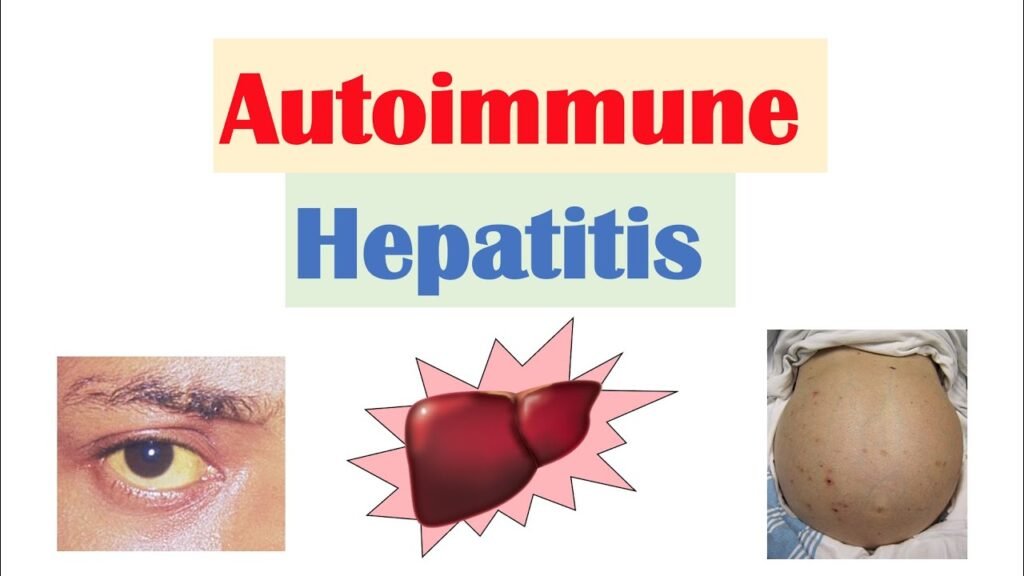
Risk factors of Autoimmune Hepatitis
Factors that may increase your risk of autoimmune hepatitis include:
- Being female. Although both males and females can develop autoimmune hepatitis, the disease is most common in females.
- Genetics. Evidence suggests that a predisposition to autoimmune hepatitis may run in families.
- Having an autoimmune disease. People who already have an autoimmune disease, such as celiac disease, rheumatoid arthritis or hyperthyroidism (Graves’ disease or Hashimoto thyroiditis), may be more likely to develop autoimmune hepatitis.
Complications of Autoimmune Hepatitis
If autoimmune hepatitis is not treated, it can lead to permanent scarring of the liver, known as cirrhosis. Cirrhosis can cause serious complications, including:
Enlarged veins in the esophagus (esophageal varices):
The portal vein carries blood from the intestines to the liver. If blood flow is blocked, it can back up into other vessels, especially in the stomach and esophagus. These veins have thin walls and can rupture, causing life-threatening bleeding that requires immediate medical attention.Fluid buildup in the abdomen (ascites):
Liver disease can lead to large amounts of fluid accumulating in the belly. Ascites can be uncomfortable, make breathing difficult, and usually indicates advanced cirrhosis.Liver failure:
Extensive liver damage can prevent the liver from functioning properly. At this stage, a liver transplant may be necessary.Liver cancer:
People with cirrhosis have a higher risk of developing liver cancer.
